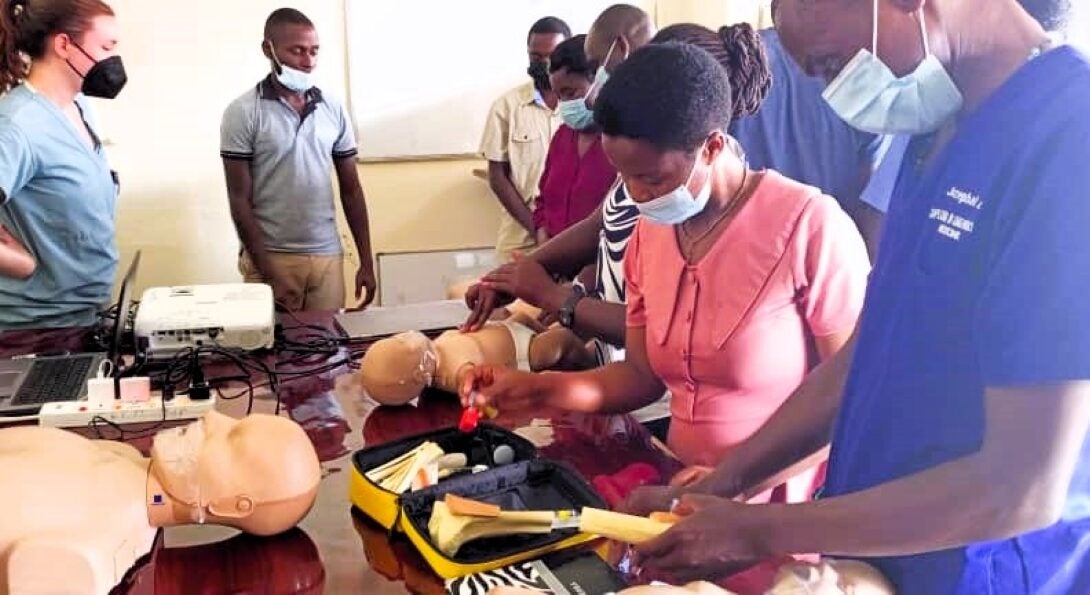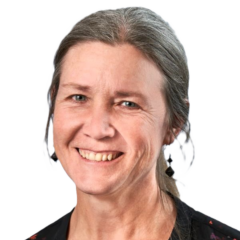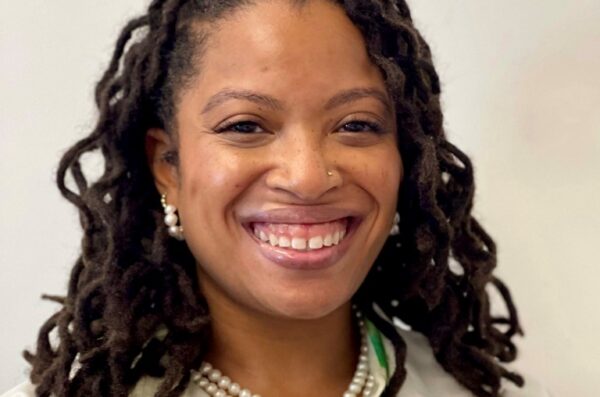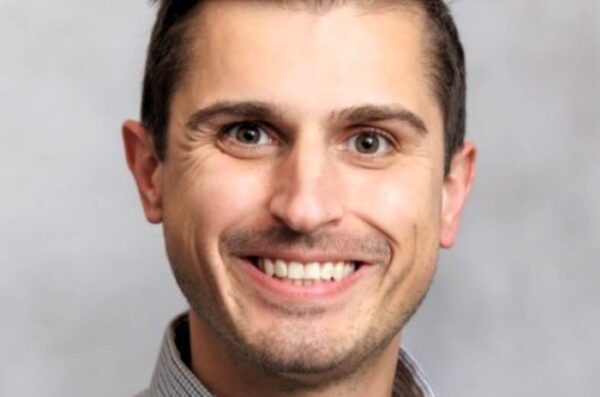Social and Global Emergency Medicine Fellowship

The University of Illinois at Chicago (UIC) Social and Global Emergency Medicine Fellowship is a two-year post-graduate program that trains and develops emergency physician leaders dedicated to improving health equity.
Fellowship Mission and Goals Heading link
Fellowship Mission
The UIC Department of Emergency Medicine is dedicated to advancing health equity by “passionately promoting health for anyone at any time in any place through innovative emergency medicine.” Our fellowship program trains emergency physicians to become leaders in health equity. Given the Emergency Department’s role as a medical safety net, Emergency Physicians (EPs) are uniquely positioned to treat emergencies and innovate to prevent future harm. The fellowship equips EPs to develop systems, research, and shape policies that enhance public health and value-based care, especially in low-resource settings. Graduates may pursue careers in policy, advocacy, research, education, and EM development, addressing health inequities, tackling root causes of illness, and bridging emergency care with community and population health.
Fellowship Goals
- Understand and apply the concepts of public and community health to better meet the complex needs of patients with acute illness and injury.
- Develop the ability to assess health systems and emergency medical care and identify pertinent health issues to aid in designing health programs that address identified needs.
- Develop the knowledge and skills to educate students, trainees, and faculty on concepts in health equity that will help build an EM workforce that can better address SDoH and community health, build health systems, and improve illness prevention and health equity.
- Establish a network for educational exchange, research, and funding in the field of health equity.
- Build administrative skills to organize and implement health equity, Social EM, and Global EM programs and integrate them into existing health systems.
Program Structure Heading link
Fellows obtain their Masters in Public Health or another advanced degree while working clinically and participating in numerous EM health equity initiatives. Fellows are mentored by faculty from the Department of Emergency Medicine and multi-disciplinary faculty from UI Health, the UI College of Medicine, the UIC School of Public Health, and the UIC Center for Global Health.
The fellowship’s structure is divided into seven general areas. Fellows are afforded flexibility within these areas to focus their health equity work in domestic or international contexts.
-
Clinical
The fellow will work as clinical faculty with an academic appointment (Clinical Instructor) in the Emergency Department at UI Health and an affiliated community hospital. The fellow will be responsible for clinical work in the ED and clinical training and supervision of medical students and residents. Clinical duty hours required are 576 annually or approximately 16 hours per week.
In addition to direct patient care, fellows will gain exposure to emergency patient health issues from a health delivery perspective, gain a greater understanding of urban populations and motivations for seeking care, and gain knowledge surrounding challenges in navigating the U.S. health system at urban academic and community hospitals. Fellows will also gain experience working with vulnerable communities – including immigrant populations, limited English-proficiency patients, and patients experiencing homelessness, food insecurity, substance use disorders, financial insecurity, un- or under-insured, and victims of intimate partner violence or abuse.
-
Education/Didactic Learning
Each fellow will complete a Masters in Public Health (or similar advanced degree related to health equity e.g. Masters of Clinical and Translational Science) at the UIC School of Public Health (SPH). The Masters concentration will be tailored to the fellow’s interests which could include Community Health Sciences, Health Policy and Administration, Public Health Informatics, Maternal and Child Health, and others. A Certificate in Global Public Health is offered as part of the MPH program for interested candidates.
As part of the MPH degree, fellows must complete both an Applied Practice Experience and an Integrative Learning Experience that may take many forms, such as a policy brief, evaluation/research report, community health assessment, program evaluation, strategic plan, or intervention plan, in an area related to health equity and public health. Through the MPH, fellows will gain experience working in interdisciplinary teams, essential for future practice in health equity.
Fellows will also participate in monthly journal club review and discussions with the national SAEM/ACEP Social or Global EM Journal Clubs.
-
Research
The UIC Department of Emergency Medicine, UI College of Medicine, and UIC Center for Global Health have robust research programs, including many funded grant studies and health equity research with an emphasis on disease screening and prevention, investigating social determinants of health, and designing systemic interventions to improve community and population health. EM research topics include investigating chronic disease screening and prevention, cardiovascular disease, diabetes, hypertension, sickle cell disease, COVID, health education, health disparities, substance use disorder, and homelessness, among others.
Research skills are critical to working in health equity, to build knowledge of effective interventions that address community health and the social determinants of health. Fellows will participate in a research project by either developing an original idea into a project or working on an ongoing project. Fellows will also have opportunities to participate in grant writing, writing IRB applications, project design and implementation, data collection and analysis, and manuscript writing. Fellows will develop and submit an abstract on a health equity research topic to a national conference.
-
Health Policy and Advocacy
UI Health faculty serve in leadership positions with the Chicago Department of Public Health and numerous policy and advocacy organizations, including the Illinois College of Emergency Physicians (ICEP), the American College of Emergency Physicians (ACEP), and the Society for Academic Emergency Medicine (SAEM). Fellows will participate in health equity, social EM, or global EM committee work with a policy or advocacy organization to develop leadership, communication, education, and advocacy skills for practice changes related to health equity. Fellows will also receive training in writing Op-Eds.
Fellows will write an Op-Ed or contribute to a Social EM or Global Health podcast.
-
Teaching
As teaching faculty in a large residency program, fellows will be required to work directly with residents in the UIC Emergency Medicine Social EM track or Graduate Global Health Program to plan, develop, and deliver educational content related to health equity. This may include case studies, lectures, simulation sessions, FOAM materials, or other educational products to educate trainees and ensure that all UIC EM trainees have foundational knowledge of health equity issues. Fellows will also be required to work with residents to develop an annual Social or Global EM-focused journal club. Additionally, fellows will also have the opportunity to teach UI COM medical students via medical colloquia workshops or by partnering with the Simulation and Integrative Learning (SAIL) Center staff.
-
Community Service and Engagement
To foster community engagement between UI Health and local and global communities and better understand the SDoH affecting emergency patients, fellows will work with a local or global community-based organization addressing a topic related to health equity. Current initiatives include Illinois Heart Rescue, the Community Health And eMPowerment through Integration Of Neighborhood-specific Strategies using a Novel Education & Technology-leveraged Workforce (CHAMPIONS NETWork), the Night Ministry, Chicago Street Medicine, Global Emergency Care, MedGlobal, numerous programs with the UIC Office of Community Engagement and Neighborhood Health Partnerships (OCEAN), or others.
-
Quality Improvement
UI Health has instituted a social determinants screening tool using the Epic electronic health record system. The Department of Emergency Medicine also has a quality improvement (QI) team and social workers, care coordinators, and discharge planners who assist emergency patients with issues including: home health needs; access to prescription medications, medical supplies/hardware, transport needs, access to outpatient services, etc. Additionally, UIC EM faculty have partners working in nascent global EM programs and departments.
Utilizing these resources, fellows will investigate, design, and implement a systems-based practice initiative in an area of health equity designed to improve quality care for emergency patients.
-
Fellowship History
The University of Illinois has a legacy of training EM physicians in health equity. Recognizing health disparities throughout the world, in 1995, UIC was the first institution to introduce a fellowship in International Emergency Medicine. As the field of Global Emergency Medicine developed, our program has offered high-quality training and mentorship to help fellows build skills in partnering and collaboration, program management, care delivery, education, ethical research, and capacity building for almost 30 years, with the aim of improving health equity.
UIC also has a long-standing commitment to building health equity in our Chicago community. We are engaged in research to promote prevention, initiatives to address Social Determinants of Health (SDoH) and health risk factors, community engagement and education activities,, and local, state, and national policy and advocacy efforts to use our position in Emergency Medicine to develop systematic community-based interventions that will improve health for all.
With this rich experience in local and global health equity programs, we offer a Social and Global Emergency Medicine Fellowship that trains future leaders in health equity, focusing on the intersection of emergency medicine, individual health, and population health. Building on UIC’s long-standing experience and diverse expertise of faculty mentors, our Fellowship offers flexibility for Emergency Physicians seeking training to become health equity leaders, whether they focus on local or global community work, or have overlapping interests.
-
International Fieldwork
Fellows interested in Global EM may complete work in the core areas identified above through a combination of local, international, or virtual international experiences. International fieldwork could include the provision of emergency care, research, teaching/training, public health interventions, and disaster and humanitarian response. Depending upon coursework and clinical work responsibilities, the fellow may have up to 4-5 months of international experience, with fieldwork length varying from 1 to 8 weeks at a time. International fieldwork is generally arranged by the fellow, with the supervision of the Fellowship Directors. Fellows may participate in ongoing global health initiatives with multidisciplinary faculty from UIC and partner institutions, and/or fellows may suggest independent projects.
-
Duration
The fellowship is a two-year program incorporating the advanced degree, clinical and teaching responsibilities, health equity research, and project-based and community engagement work as above. At the discretion of the fellowship directors, a one-plus-year fellowship is possible for those who have already received their MPH degree.
-
Eligibility
The UIC Social and Global Emergency Medicine Fellowship accepts ABEM board-certified or board-eligible emergency physicians who are U.S. citizens, permanent residents, or DACA recipients.
-
Compensation
Fellows earn a competitive salary, a full tuition waiver for their MPH coursework, comprehensive medical benefits, and an additional stipend that can be used for travel-related expenses, course fees, conference fees, or other fellowship-related expenses.
Application Process Heading link
Applicants must email the requisite documents to Dr. Stacey Chamberlain, Program Co-Director, staceymd@uic.edu
- A letter of intent (one page describing why you seek a Fellowship specifically at UIC and what makes you a good fit for this program)
- A personal statement (describe your interest and background in health equity, Social EM, or Global Health/EM work)
- A curriculum vitae
- Three letters of recommendation (at least one from your EM residency Program Director)
After being accepted into the fellowship, accepted fellows will be required to apply independently to the University of Illinois School of Public Health MPH program by the April 15th deadline.
Important Dates Heading link
-
Application Deadline:
We are not accepting applications for the 2026-2027 Academic Year. Please check back.
-
Interviews by Invitation:
N/A
-
Offer Date:
N/A
*Note – We are not participating in the Global EM Fellowship “Match.”
Program Co-Directors Heading link

Stacey Chamberlain, MD, MPH, Professor of Clinical Emergency Medicine, Co-Director of Social and Global Emergency Medicine Fellowship

Charlie Inboriboon, MD, MPH, Associate Professor of Emergency Medicine, Co-Director of Social and Global Emergency Medicine Fellowship
Fellows Heading link
Dr. Sanché Mabins, 2024-2026 Social Emergency Medicine Fellow

Dr. Sanché Mabins is our current Fellow. Dr. Mabins completed her Bachelor of Science in Biology and Psychology from Carnegie Mellon University, a Postbac Intramural Research Training Program at the National Institutes of Health, her Doctor of Medicine at Loyola University Chicago Stritch School of Medicine, and her Emergency Medicine Residency training at John H. Stroger Hospital of Cook County.
Dr. Mabins founded the Cook County EM Residency Social Emergency Medicine (SEM) Committee during her residency, organizing a lecture series and journal club on critical social issues in emergency medicine. She is a contributing author of the “Race and Racism” section of the Social Emergency Medicine and Population Health Curriculum developed and published through the Society of Academic Emergency Medicine (SAEM). She has also served as Co-Chair of the Diversity Equity and Inclusion Education Committee for the SAEM, pioneering the development of guidelines for creating educational materials, oral presentations, and webinars with a DEI perspective. Dr. Mabins has demonstrated her commitment to the community through her engagement with the I Am Abel Foundation, an outreach program for underrepresented minorities interested in careers in healthcare.
Her diverse interests and extensive expertise in emergency medicine, combined with her commitment to Social Emergency Medicine and DEI, make Dr. Mabins an invaluable addition to our team.
Dr. Paul Blessing, 23/24 Global Emergency Medicine Fellow Alum

Dr. Paul Blessing is our 23/24 alumnus. He received his undergraduate degree from Saint Louis University, earning a Bachelor of Science in Biomedical Engineering with a Minor in Public Health. He completed his Doctor of Medicine at University of Illinois Chicago, during which time he also completed a scholarly concentration program in Global Medicine (GMED). He stayed at UIC for residency, completing a dual Emergency Medicine and Internal Medicine combined residency training program.
As a fellow, Dr. Blessing received training in complex humanitarian emergencies with the Harvard Humanitarian Institute, completed tropical medicine training with the Infectious Disease Institute of Uganda, assisted with medical student training in Rwanda with the University of Global Health Equity, and successfully obtained and implemented a grant for provider training in point-of-care ultrasound (POCUS) in Uganda. He also earned his Masters in Public Health (MPH) at UIC.
Upon completing the Fellowship in July 2024, Dr. Blessing became faculty at UIC as an Assistant Professor of Emergency Medicine and Internal Medicine at UIC and Little Company of Mary Hospital. He also took over leadership of the Global Medicine (GMED) Program at the UI College of Medicine.
Faculty and Affiliate Faculty Heading link
Faculty
- Stephen Brown, Director of Preventive Emergency
- Stacey Chamberlain, Co-Director of Social and Global Emergency Medicine Fellowship, Professor of Clinical Emergency Medicine
- Samantha Hay, Assistant Professor of Emergency Medicine
- Charlie Inboriboon, Co-Director of Social and Global Emergency Medicine Fellowship, Associate Professor of Clinical Emergency Medicine
- Pavitra Kotini-Shah, Assistant Professor of Emergency Medicine
- Janet Lin, Professor of Clinical Emergency Medicine
- Mahir “Mahi” Mameledzija, Assistant Professor of Clinical Emergency Medicine
- Vinay Mikkilineni, Clinical Instructor Department of Emergency Medicine and Internal Medicine
- Heather Prendergast, Professor of Emergency Medicine
- Terry Vanden Hoek, Chair, Earl M. Bane Professor of Emergency Medicine
Affiliate Faculty
- Halleh Akbarnia, MD, Advocate Luthern General, Organizer with Moms Demand, Illinois Medical Professionals Action Collaborative Team (IMPACT)
- Martha L. Daviglus, MD, PhD; Executive Director, Institute for Minority Health Research and Associate Vice Chancellor for Research.
- Wayne H. Giles, MD, MS; Dean, UIC School of Public Health
- Jerry A. Krishnan, MD, PhD; Professor of Medicine, Division of Pulmonary, Critical Care, Sleep, & Allergy Professor of Public Health, Division of Epidemiology & Biostatistics Associate, Vice Chancellor for Population Health Sciences
- Stevan M Weine, MD, Director of Global Medicine & Director of the Center for Global Health; Professor, Department of Psychiatry
Publications Heading link
-
Social EM Publications
McNulty MC, Stanford KA, Eller D, Sha BE, Purim-Shem-Tov Y, Kishen E, Glick N, Hunt B, Lin JY, Maheswaran A, Galvin S, Turelli R, Schmitt J, Pitrak D. Concurrent Testing for COVID-19 and HIV Infection at 6 High-Volume Emergency Departments in a Priority Jurisdiction for Ending the HIV Epidemic in the United States. J Acquir Immune Defic Syndr. 2023 Dec 1;94(4):364-370. doi: 10.1097/QAI.0000000000003287. Epub 2023 Oct 26. PMID: 37884056; PMCID: PMC10609715.
Horwitz LI, Thaweethai T, Brosnahan SB, et al. Researching COVID to Enhance Recovery (RECOVER) adult study protocol: Rationale, objectives, and design. PLoS One. 2023 Jun 23;18(6):e0286297. doi: 10.1371/journal.pone.0286297. PMID: 37352211; PMCID: PMC10289397.
Kotini-Shah P, Blum N, Khosla S, Weber J, Markul E, Tataris K, Campbell T, Vanden Hoek T, Del Rios M. Interhospital variability in Out-of-Hospital cardiac arrest survival in a large metropolitan area. Resusc Plus. 2023 Mar 31;14:100385. doi: 10.1016/j.resplu.2023.100385.
Prendergast HM, Khosla S. Lessons learned about policymaking: Moving an emergency department-initiated screening protocol to systemwide input in the development and implementation process. Acad Emerg Med. 2023 Jan 27. doi: 10.1111/acem.14672. Epub ahead of print. PMID: 36707976.
Danielson KK, Rydzon B, Nicosia M, Maheswaren A, Eisenberg Y, Lin J, Layden BT. Prevalence of Undiagnosed Diabetes Identified by a Novel Electronic Medical Record Diabetes Screening Program in an Urban Emergency Department in the US. JAMA Netw Open. 2023 Jan 3;6(1):e2253275. doi: 10.1001/jamanetworkopen.2022.53275. PMID: 36701158; PMCID: PMC9880794.
Chan PS, Merritt R, Chang A, Girotra S, Kotini-Shah P, Al-Araji R, McNally B. Race and ethnicity data in the cardiac arrest registry to enhance survival: Insights from medicare self-reported data. Resuscitation. 2022 Sep 22;180:64-67. doi: 10.1016/j.resuscitation.2022.09.011. Epub ahead of print. PMID: 36156280; PMCID: PMC10030374.
Prendergast H, Tyo C, Colbert C, Kelley M, Pobee R. Medical complications of obesity: heightened importance in a COVID era. Int J Emerg Med. 2022 Jun 23;15(1):29. doi: 10.1186/s12245-022-00431-7. PMID: 35739488; PMCID: PMC9219148.
Lin J, Mauntel-Medici C, Maheswaran AB, Baghikar S, Pugach O, Stein EM, Martin MT, Nguyen H. Factors predicting staging and treatment initiation for patients with chronic hepatitis C infection: insurance a key predictor. J Public Health (Oxf). 2022 Mar 7;44(1):148-157. doi: 10.1093/pubmed/fdaa276. PMID: 33539524; PMCID: PMC8904194.
Heinert SW, Riggs R, Prendergast H. Emergency Department Management of Hypertension in the Context of COVID-19. Curr Hypertens Rep. 2022 Feb;24(2):37-43. doi: 10.1007/s11906-022-01169-6. Epub 2022 Jan 25. PMID: 35076879; PMCID: PMC8787746.
Prendergast H, Del Rios M, Durazo-Arvizu R, Escobar-Schulz S, Heinert S, Jackson M, Gimbar RP, Daviglus M, Lara B, Khosla S. Effect of an emergency department education and empowerment intervention on uncontrolled hypertension in a predominately minority population: The AHEAD2 randomized clinical pilot trial. J Am Coll Emerg Physicians Open. 2021 Mar 2;2(2):e12386. doi: 10.1002/emp2.12386. PMID: 33718921; PMCID: PMC7926004.
Prendergast HM, Escobar-Schulz S, Del Rios M, Petzel-Gimbar R, McPherson C, Jackson M, Terrell K, Heinert SW. Community Targeting of Uncontrolled Hypertension: Results of a Hypertension Screening and Education Intervention in Community Churches Serving Predominantly Racial/Ethnic Minority Populations. Health Promot Pract. 2021 Sep;22(5):714-723. doi: 10.1177/1524839920933897. Epub 2020 Jun 17. PMID: 32552138.
Heinert S, Escobar-Schulz S, Jackson M, Del Rios M, Kim S, Kahkejian J, Prendergast H. Barriers and Facilitators to Hypertension Control Following Participation in a Church-Based Hypertension Intervention Study. Am J Health Promot. 2020 Jan;34(1):52-58. doi: 10.1177/0890117119868384. Epub 2019 Aug 13. PMID: 31409096.
Prendergast HM, Petzel-Gimbar R, Kitsiou S, Del Rios M, Lara B, Jackson M, Heinert S, Carter BL, Durazo-Arvizu RA, Daviglus M. Targeting of uncontrolled hypertension in the emergency department (TOUCHED): Design of a randomized controlled trial. Contemp Clin Trials. 2021 Mar;102:106283. doi: 10.1016/j.cct.2021.106283. Epub 2021 Jan 20. PMID: 33484897; PMCID: PMC8272286.
McNulty M, Schmitt J, Friedman E, Hunt B, Tobin A, Maheswaran AB, Lin J, Novak R, Sha B, Rolfsen N, Moswin A, Rose B, Pitrak D, Glick N. Implementing Rapid Initiation of Antiretroviral Therapy for Acute HIV Infection Within a Routine Testing and Linkage to Care Program in Chicago. J Int Assoc Provid AIDS Care. 2020 Jan-Dec;19:2325958220939754. doi: 10.1177/2325958220939754. PMID: 32734805; PMCID: PMC7401059.
Sawyer KN, Camp-Rogers TR, Kotini-Shah P, Del Rios M, Gossip MR, Moitra VK, Haywood KL, Dougherty CM, Lubitz SA, Rabinstein AA, Rittenberger JC, Callaway CW, Abella BS, Geocadin RG, Kurz MC; American Heart Association Emergency Cardiovascular Care Committee; Council on Cardiovascular and Stroke Nursing; Council on Genomic and Precision Medicine; Council on Quality of Care and Outcomes Research; and Stroke Council. Sudden Cardiac Arrest Survivorship: A Scientific Statement From the American Heart Association. Circulation. 2020 Mar 24;141(12):e654-e685. doi: 10.1161/CIR.0000000000000747. Epub 2020 Feb 12. PMID: 32078390.
Del Rios M, Colla J, Kotini-Shah P, Briller J, Gerber B, Prendergast H. Emergency physician use of tissue Doppler bedside echocardiography in detecting diastolic dysfunction: an exploratory study. Crit Ultrasound J. 2018 Jan 25;10(1):4. doi: 10.1186/s13089-018-0084-5. PMID: 29372430; PMCID: PMC5785451.
Prendergast HM, Del Rios M, Petzel-Gimbar R, Garside D, Heinert S, Escobar-Schulz S, Kotini-Shah P, Brown M, Chen J, Colla J, Fitzgibbon M, Durazo-Arvizu RA, Daviglus M. A hypertension emergency department intervention aimed at decreasing disparities: Design of a randomized clinical trial. Contemp Clin Trials. 2018 Jan;64:1-7. doi: 10.1016/j.cct.2017.11.009. Epub 2017 Nov 8. PMID: 29128648; PMCID: PMC5837806.
Lin J, Baghikar S, Mauntel-Medici C, Heinert S, Patel D. Patient and System Factors Related to Missed Opportunities for Screening in an Electronic Medical Record-driven, Opt-out HIV Screening Program in the Emergency Department. Acad Emerg Med. 2017 Nov;24(11):1358-1368. doi: 10.1111/acem.13277. Epub 2017 Sep 23. PMID: 28833779.
Heinert S, Carter J, Mauntel-Medici C, Lin J. Assessment of Nurse Perspectives on an Emergency Department-Based Routine Opt-Out HIV Screening Program. J Assoc Nurses AIDS Care. 2017 May-Jun;28(3):316-326. doi: 10.1016/j.jana.2016.12.004. Epub 2016 Dec 15. PMID: 28087204.
Lin J, Mauntel-Medici C, Heinert S, Baghikar S. Harnessing the Power of the Electronic Medical Record to Facilitate an Opt-Out HIV Screening Program in an Urban Academic Emergency Department. J Public Health Manag Pract. 2017 May/Jun;23(3):264-268. doi: 10.1097/PHH.0000000000000448. PMID: 27598705.
Dickens C, Weitzel D, Brown S. Mr. G And The Revolving Door: Breaking The Readmission Cycle At A Safety-Net Hospital. Health Affairs. 2016 Mar. 35:3; https://doi.org/10.1377/hlthaff.2015.0967
Prendergast HM, Colla J, Patel N, Del Rios M, Marcucci J, Scholz R, Ngwang P, Cappitelli K, Daviglus M, Dudley S. Correlation between Subclinical Heart Disease and Cardiovascular Risk Profiles in an Urban Emergency Department Population with Elevated Blood Pressures: A Pilot Study. J Emerg Med. 2015 Jun;48(6):756-61. doi: 10.1016/j.jemermed.2014.12.026. Epub 2015 Mar 20. PMID: 25802165; PMCID: PMC4457673.
Prendergast HM, Dudley S, Kane J, Daviglus M, Marcucci J, Acosta A, Bunney EB, Richardson D, O’Neal T. Progression of left ventricular diastolic dysfunction in ethnic minorities. High Blood Press Cardiovasc Prev. 2014 Sep;21(3):205-11. doi: 10.1007/s40292-013-0031-2. PMID: 24235072; PMCID: PMC4713118.
Prendergast HM, Dudley S, Brown M, Daviglus M, Kane J, Bradshaw Bunney E, Marcucci J, Sanyaolu R. Antihypertensive medications and diastolic dysfunction progression in an African American population. High Blood Press Cardiovasc Prev. 2014 Dec;21(4):269-74. doi: 10.1007/s40292-014-0064-1. Epub 2014 Jun 28. PMID: 24972662; PMCID: PMC4713010.
-
Global EM Publications
Cevik AA, Cakal ED, Kwan J, Chu S, Mtombeni S, Anantharaman V, Jouriles N, Peng DTK, Singer A, Cameron P, Ducharme J, Wai A, Manthey DE, Hobgood C, Mulligan T, Menendez E, Jakubaszko J; International Federation for Emergency Medicine Undergraduate Emergency Medicine Learning Outcomes Update Collaborators. IFEM model curriculum: emergency medicine learning outcomes for undergraduate medical education. Int J Emerg Med. 2024 Aug 5;17(1):98. doi: 10.1186/s12245-024-00671-9. PMID: 39103797; PMCID: PMC11302100.
Jarrett O, Humaidan-Zayed L, Chamberlain S, Weine S. Strengthening Mentorship in Global Health for US Medical Students. Ann Glob Health. 2023 Sep 27;89(1):61. doi: 10.5334/aogh.4106. PMID: 37780838; PMCID: PMC10541226.
Rice B, Pickering A, Laurence C, Kizito PM, Leff R, Kisingiri SJ, Ndyamwijuka C, Nakato S, Adriko LF, Bisanzo M; Global Emergency Care Investigator Group; Global Emergency Care Collaborative Investigators. Emergency medicine physician supervision and mortality among patients receiving care from non-physician clinicians in a task-sharing model of emergency care in rural Uganda: a retrospective analysis of a single-centre training programme. BMJ Open. 2022 Jun 29;12(6):e059859. doi: 10.1136/bmjopen-2021-059859. PMID: 35768107; PMCID: PMC9244677.
Rice B, Calo S, Kamugisha JB, Kamara N, Chamberlain S; Global Emergency Care Investigator Study Group. Emergency care of sepsis in sub-Saharan Africa: Mortality and non-physician clinician management of sepsis in rural Uganda from 2010 to 2019. PLoS One. 2022 May 11;17(5):e0264517. doi: 10.1371/journal.pone.0264517. PMID: 35544466; PMCID: PMC9094533.
Pickering A, Patiño A, Garbern SC, Abu-Jubara D, Digenakis A, Rodigin A, Banks M, Herard K, Chamberlain S, DeVos EL. Building a virtual community of practice for medical students: The Global Emergency Medicine Student Leadership Program. J Am Coll Emerg Physicians Open. 2021 Dec 29;2(6):e12591. doi: 10.1002/emp2.12591. PMID: 35005703; PMCID: PMC8716569.
Kaeppler C, Holmberg P, Tam RP, Porada K, Stryker SD, Conway K, Schubert C; Medical Student Global Health Study Group. The impact of global health opportunities on residency selection. BMC Med Educ. 2021 Jul 15;21(1):384. doi: 10.1186/s12909-021-02795-5. PMID: 34266446; PMCID: PMC8280583.
Weine S, Bosland M, Rao C, Edison M, Ansong D, Chamberlain S, Binagwaho A. Global Health Education Amidst COVID-19: Disruptions and Opportunities. Ann Glob Health. 2021 Feb 2;87(1):12. doi: 10.5334/aogh.3088. PMID: 33598410; PMCID: PMC7863849.
Chamberlain S, Gonzalez N, Dobiesz V, Edison M, Lin J, Weine S. A global health capstone: an innovative educational approach in a competency-based curriculum for medical students. BMC Med Educ. 2020 May 19;20(1):159. doi: 10.1186/s12909-020-02070-z. PMID: 32429897; PMCID: PMC7236959.
Moresky RT, Razzak JA, Reynolds TA, Wallis LA, Wachira BW, Nyirenda M, Carlo WA, Lin JY, et al. “Advancing Research on Emergency Care Systems in Low-and Middle-Income Countries: Ensuring Peopled Centered, High Quality Care Delivery” BMJ Glob Health 2019.
Lin, J. “African Federation of Emergency Medicine Handbook of Acute and Emergency Care” Editor, Neurology Section, Second edition, 2019
Yantzi, R, van de Walle, G, Lin JY, “The disease isn’t listening to the drug: socio-cultural context of antibiotic misuse for viral respiratory infections in rural Uganda”, Global Public Health. Nov 2018.
Rice BT, Bisanzo M, Maling S, Joseph R, Mowafi H; Global Emergency Care Investigators Group (Study Group). Derivation and validation of a chief complaint shortlist for unscheduled acute and emergency care in Uganda. BMJ Open. 2018 Jun 27;8(6):e020188. doi: 10.1136/bmjopen-2017-020188. PMID: 29950461; PMCID: PMC6020949.
Ramesh A, LaBresh KA, Begeman R, Bobrow B, Campbell T, Chaudhury N, Edison M, Erickson TB, Manning JD, Prabhakar BS, Kotini-Shah P, Shetty N, Williams PA, Vanden Hoek T. Implementing a STEMI system of care in urban Bangalore: Rationale and Study Design for heart rescue India. Contemp Clin Trials Commun. 2018 April.
Dissanayake V, Dalka ET, Koh C, Bisanzo M, Brandt RS, Erickson TB, Chamberlain S. A pilot study on the management and outcomes of self-poisoning in a rural Ugandan Emergency Centre. African Journal of Emergency Medicine; 2018 March.
Bitter C, Rice B, Periyanayagam U, Dreifuss B, Hammerstedt H, Nelson S, Bisanzo, M, Maling S, Chamberlain S. What resources are used in emergency departments in rural sub-Saharan Africa? A retrospective analysis of patient care in a district-level hospital in Uganda. BMJ Open. 2018 February 27.
Hasselberg M, Wallis L, Blessing P, Laflamme L. A smartphone-based consultation system for acute burns – methodological challenges related to follow-up of the system. Glob Health Action. 2017 Jun;10(sup3):1328168. doi: 10.1080/16549716.2017.1328168. PMID: 28838311; PMCID: PMC5645658.
Wallis L, Blessing P, Dalwai M, Shin SD. Integrating mHealth at point of care in low- and middle-income settings: the system perspective. Glob Health Action. 2017 Jun;10(sup3):1327686. doi: 10.1080/16549716.2017.1327686. PMID: 28838302; PMCID: PMC5645717.
Roberts J, Lin JY, Weiner S., editors. (Chamberlain S, Bitter C, Dissanayake V, et al. authors). The Nuts and Bolts of Global Emergency Medicine. CreateSpace Independent Publishing Platform. October 2016.
Rice B, Periyanayagam U, Chamberlain S, Dreifuss B, Hammerstedt H, Nelson S, Maling S, Bisanzo M. Mortality in Children Under Five Receiving Nonphysician Clinician Emergency Care in Uganda. Pediatrics. 2016 Mar;137(3):e20153201. doi: 10.1542/peds.2015-3201. Epub 2016 Feb 26. PMID: 26921282.
Chamberlain S, Stolz U, Dreifuss B, Nelson SW, Hammerstedt H, Andinda J, Maling S, Bisanzo M. Mortality related to acute illness and injury in rural Uganda: task shifting to improve outcomes. PLoS One. 2015 Apr 7;10(4):e0122559. doi: 10.1371/journal.pone.0122559. PMID: 25849960; PMCID: PMC4388510.
Quinn RH, Wedmore I, Johnson EL, Islas AA, Anglim A, Zafren K, Bitter C, Mazzorana V; Wilderness Medical Society. Wilderness Medical Society practice guidelines for basic wound management in the austere environment: 2014 update. Wilderness Environ Med. 2014 Dec;25(4 Suppl):S118-33. doi: 10.1016/j.wem.2014.08.015. PMID: 25498257.
Lin, JY, Budoff A, Dyer, A. “Acceptability of a modular, community-informed disaster risk reduction training programme in Delmas, Haiti.” Consortium of Universities for Global Health, 5th Annual Conference, Lancet Global Health, published online May 10, 2014.
Hammerstedt H, Maling S, Kasyaba R, Dreifuss B, Chamberlain S, Nelson S, Bisanzo M, Ezati I. World Health Assembly Resolution 60.22. [corrected]. Ann Emerg Med. 2014 Nov;64(5):461-8. doi: 10.1016/j.annemergmed.2014.01.035. Epub 2014 Mar 11. Erratum in: Ann Emerg Med. 2014 Dec;64(6):636. PMID: 24635990.